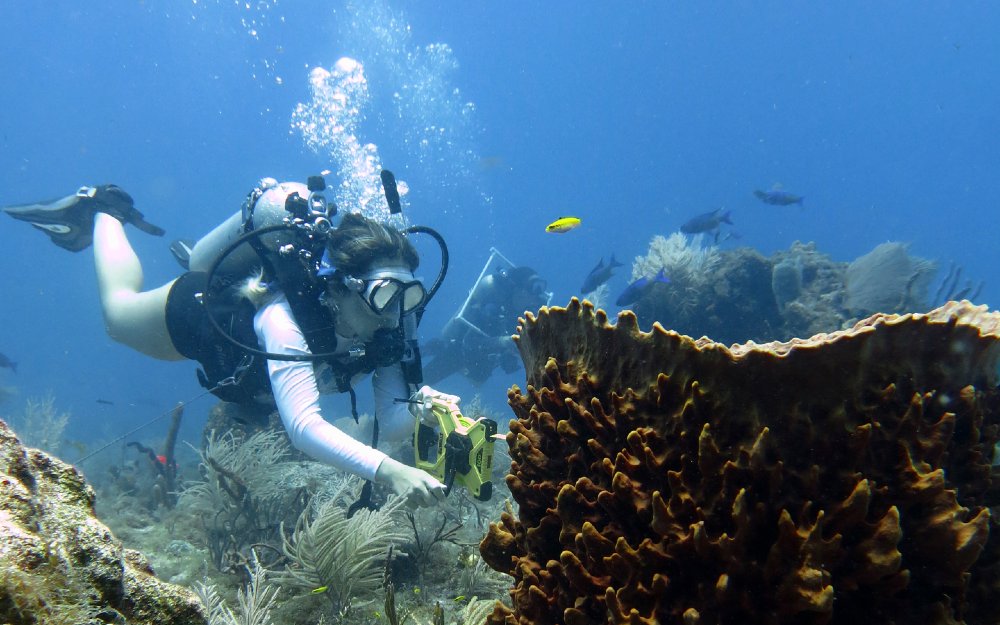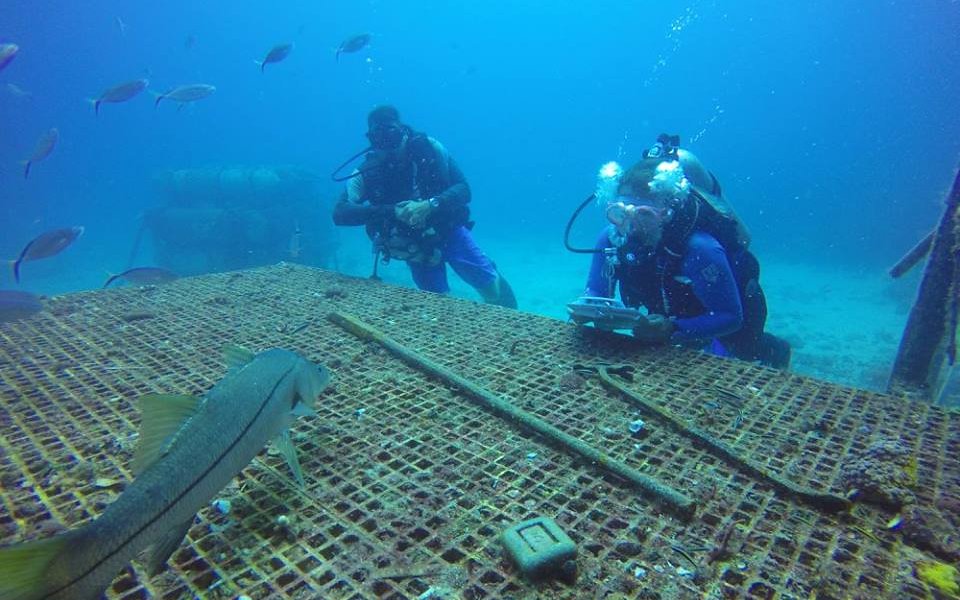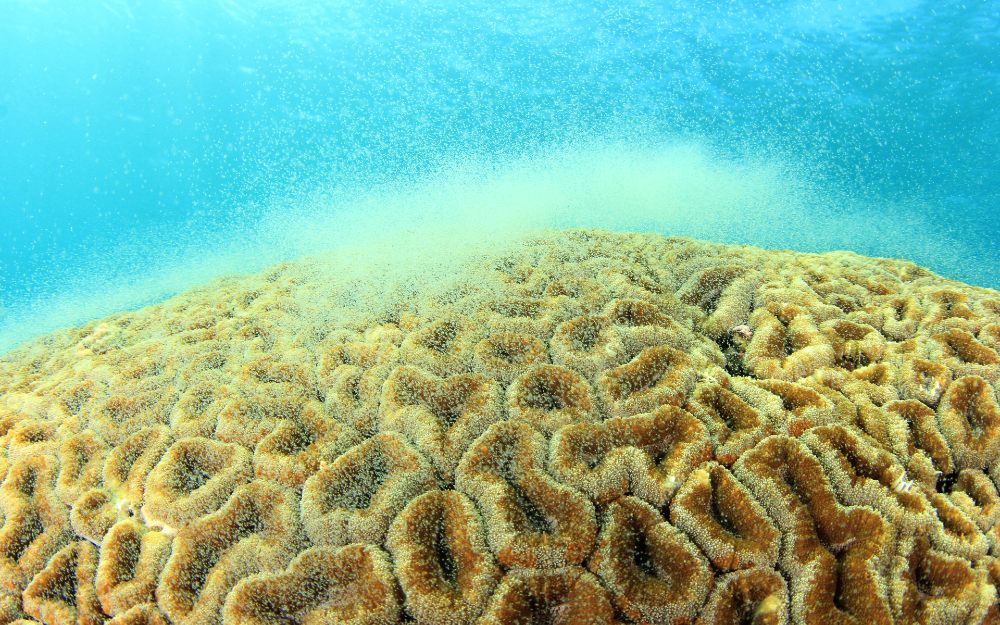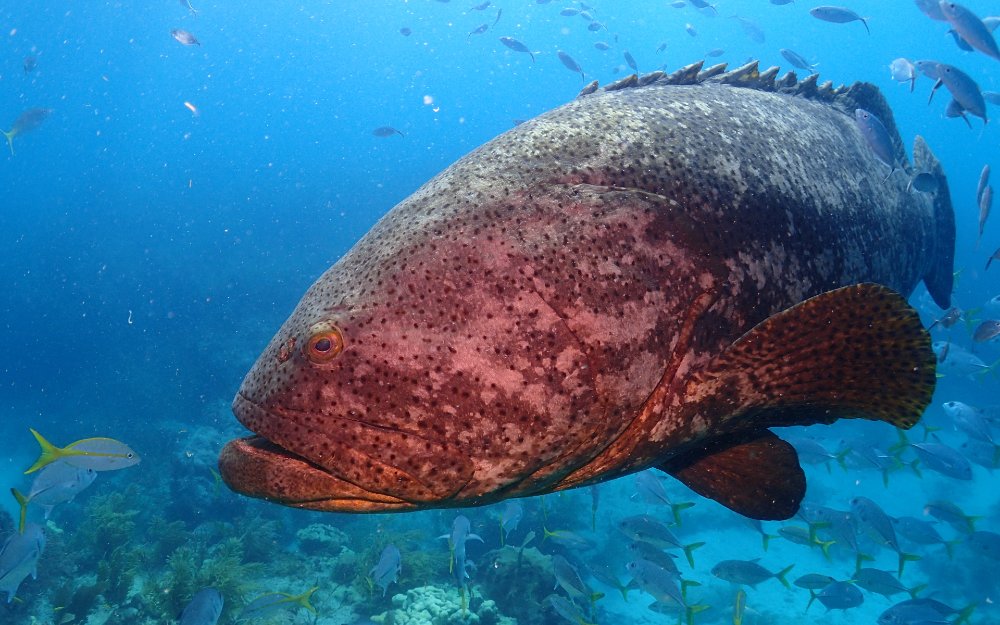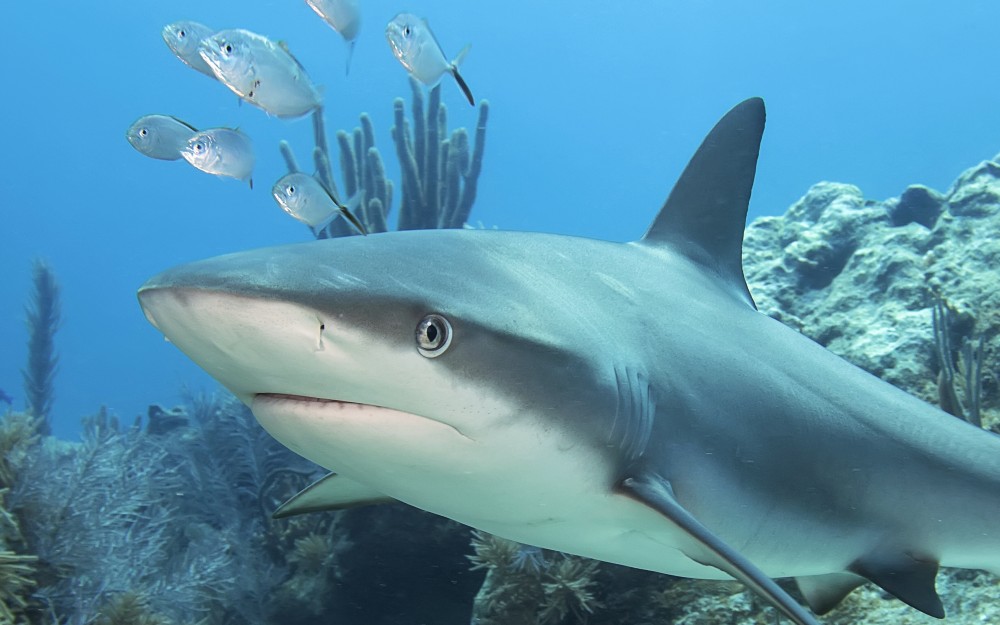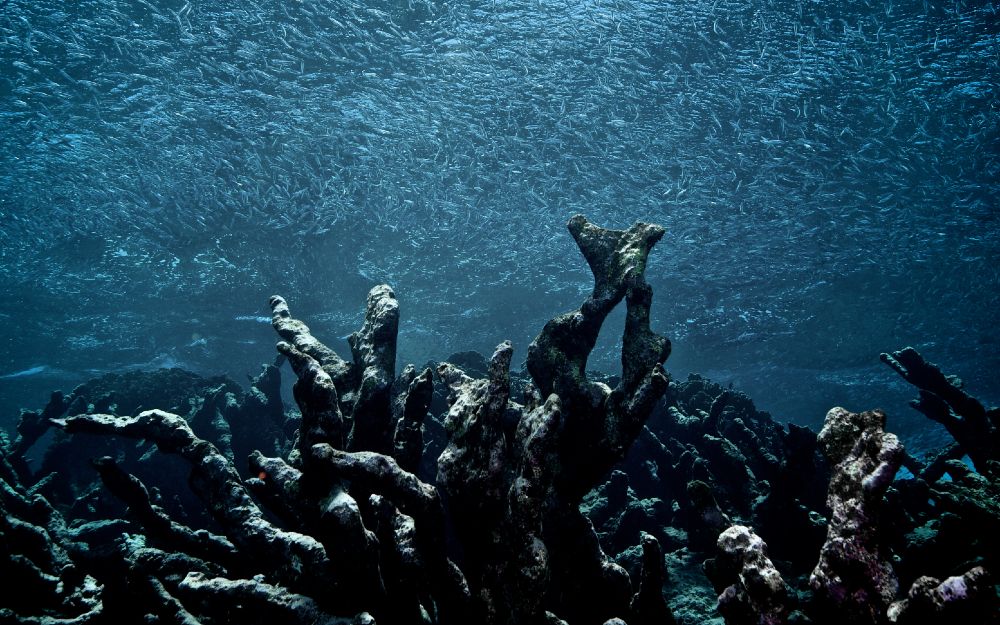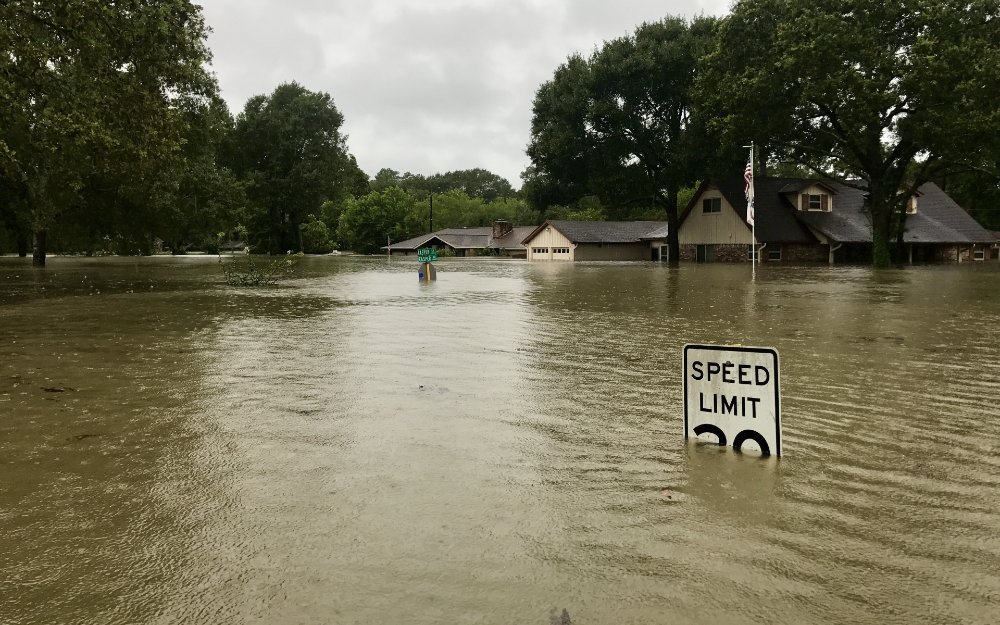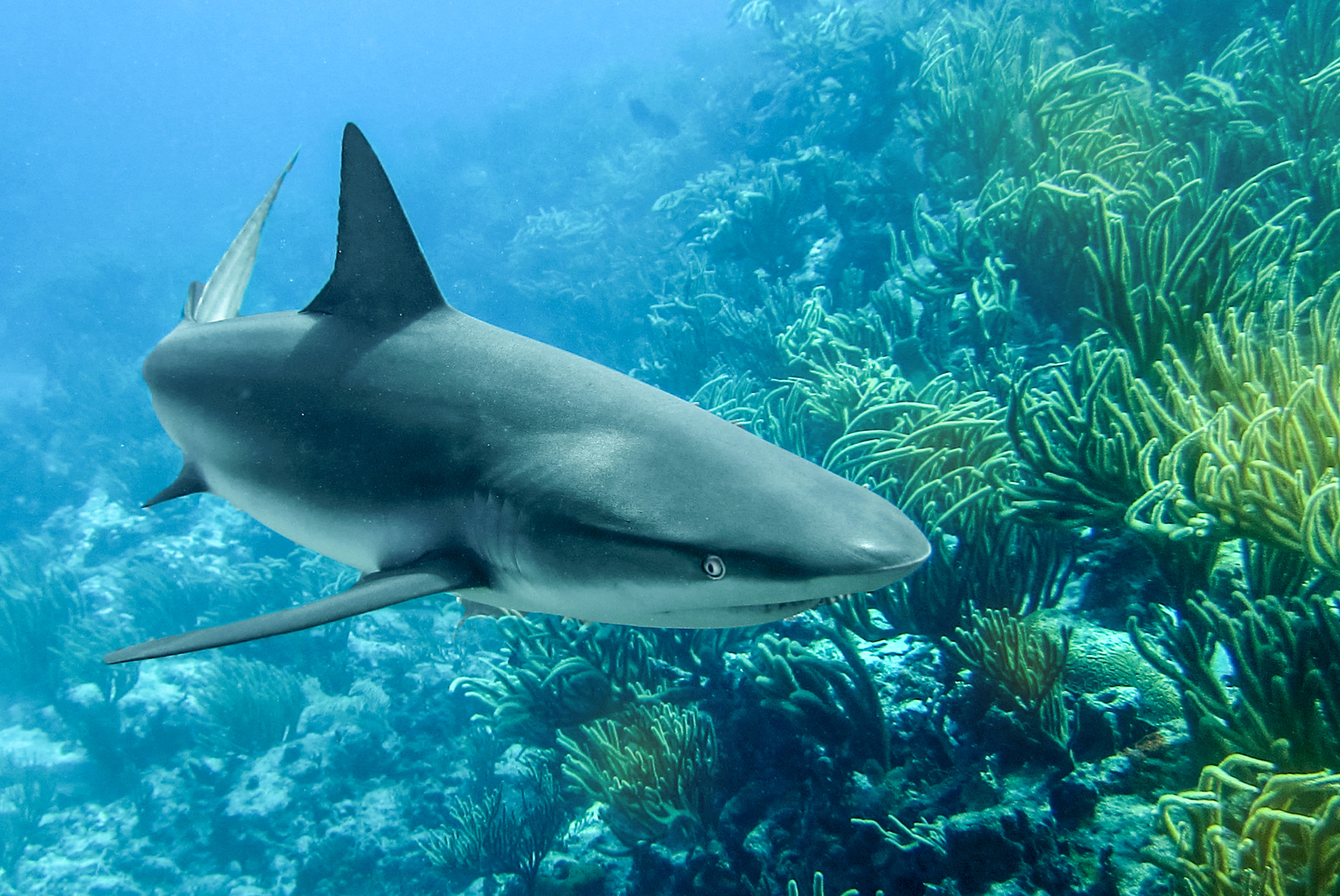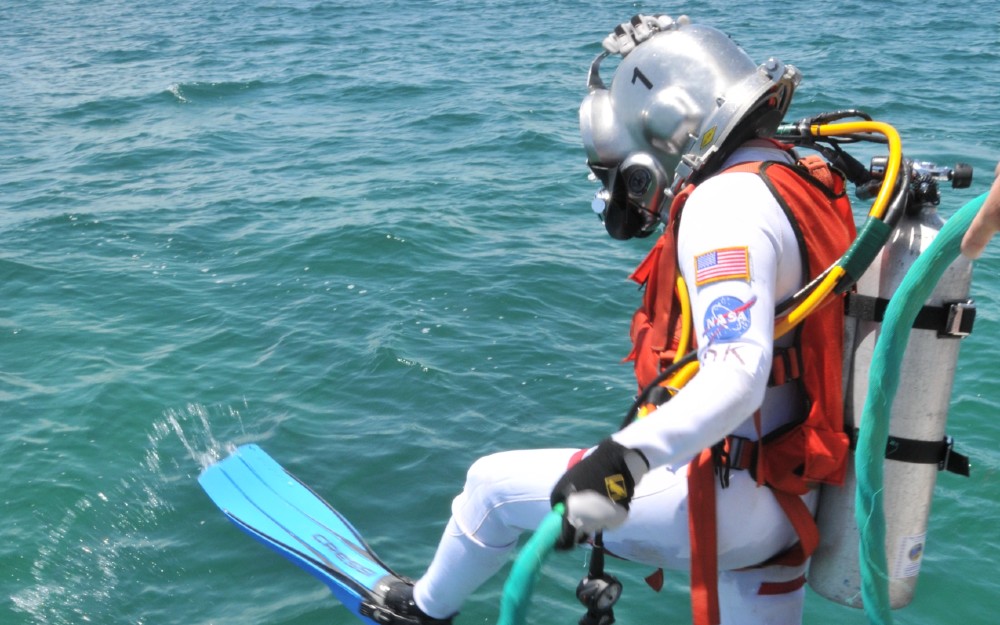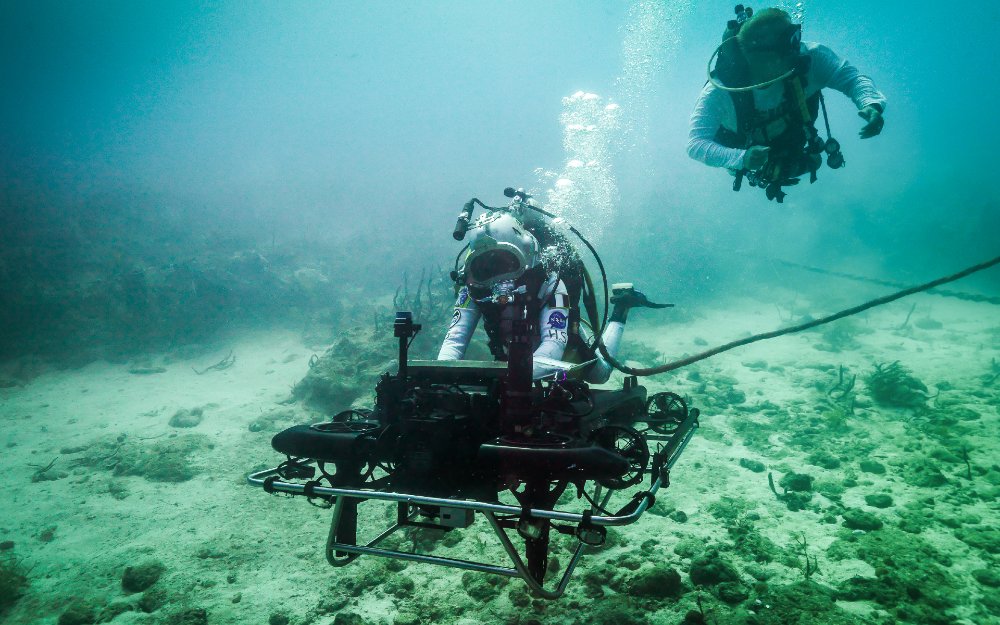Following research at the FIU Aquarius Reef Base and beyond, dive in to core concepts and see them in action through real-world research.
Module 1: Living and Working Undersea
In this module, students will learn about Aquarius Reef Base, the world’s only operating underwater research station. While learning about this unique facility, students will use models to quantitatively, conceptually and graphically apply concepts of the Kinetic Molecular Theory to volume, particles, moles and Avogadro’s number in relation to temperature and pressure. Students will use mathematics and conceptual thinking to calculate percent composition, molecular formulas, and molar mass of gasses, exploring these concepts as they apply to scuba diving.
Students will learn what it takes to live underwater and use teamwork in a mock emergency scenario to determine which items are most critical to survival on board Aquarius. This lesson will cover core concepts within English language arts such as communicating through writing and speaking.
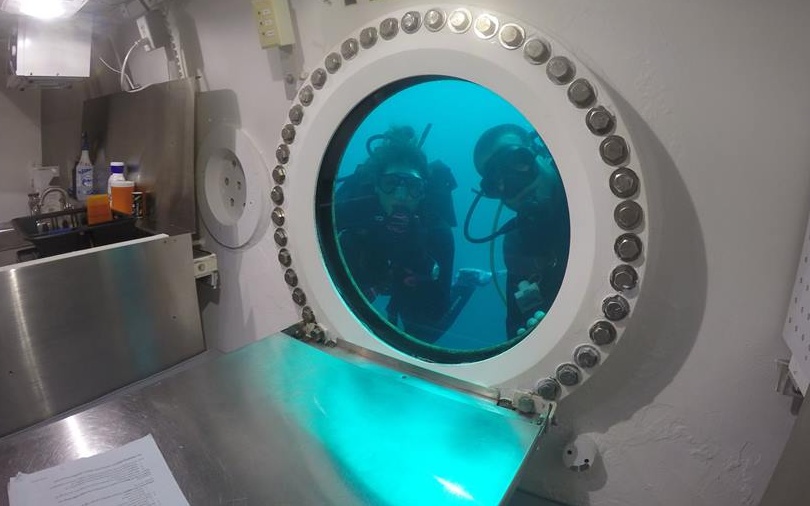
Module 2: Life on the Reef
Coral reefs are some of the most diverse ecosystems on the planet. In fact, despite covering an estimated .01 percent of the earth’s surface, they support nearly a quarter of all marine life. They play an important role in a number of the ecosystem services provided by our oceans. The lessons within this module introduce students to the ecology of coral reefs and the life that depends on this habitat. Content subjects include an introduction to cells, reproduction, wildlife classification and resource management.
- Lesson 1: Coral Creations
- Lesson 2: Where Are My Coral Larvae?
- Lesson 3: Fish Detective
- Lesson 4: Connect to Protect
Students will develop a model of a cell and construct an explanation of the cell structures that help animals obtain nutrients in order to grow, reproduce, make needed materials and process waste. Students will explore life sciences concepts such as cell theory using corals as a real-world example.
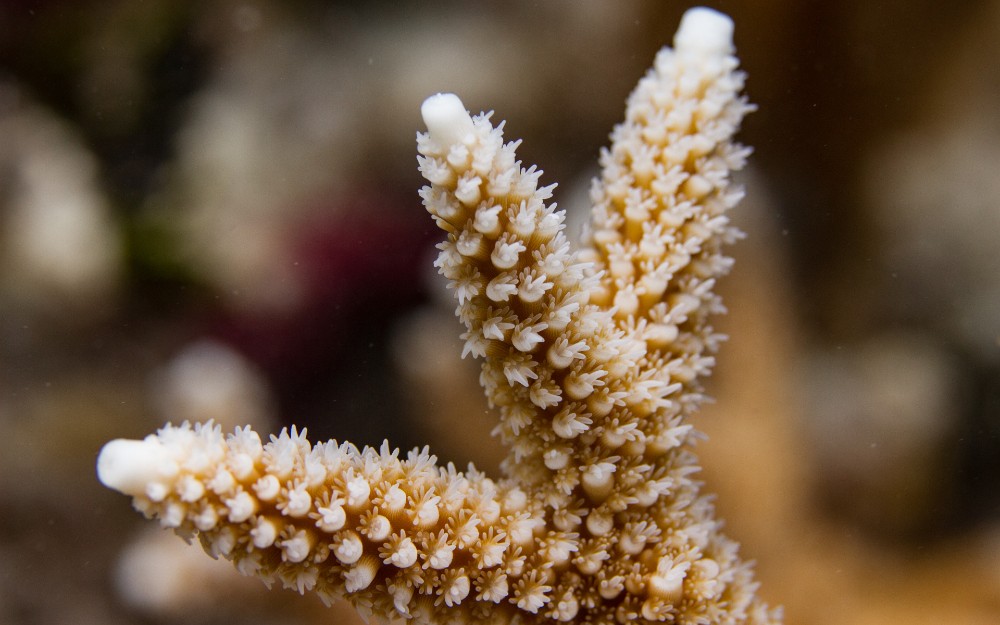
Module 3: Seas of Change
Throughout this module, students will learn about coral bleaching, ocean acidification and sea level rise. Real-life situations will be used to predict changes in biomass and biodiversity; explain the relationship between population growth and human impact on the environment; design sustainability plans to reduce their individual contribution to environmental impacts. Students will gain an understanding of the impacts humans have on natural resources.
- Lesson 1: Can You Take the Heat?
- Lesson 2: More Acidity, More Problems
- Lesson 3: SOS - Rising Seas
- Lesson 4: Finding Fins
This lesson gives students the opportunity to learn how human-related effects on greenhouse gasses and climate impact our oceans. Students will compare coral bleaching data from two different reefs to better understand the threats facing coral reefs. This lesson’s core concepts focus on life science and human impact on the environment in terms of climate change.
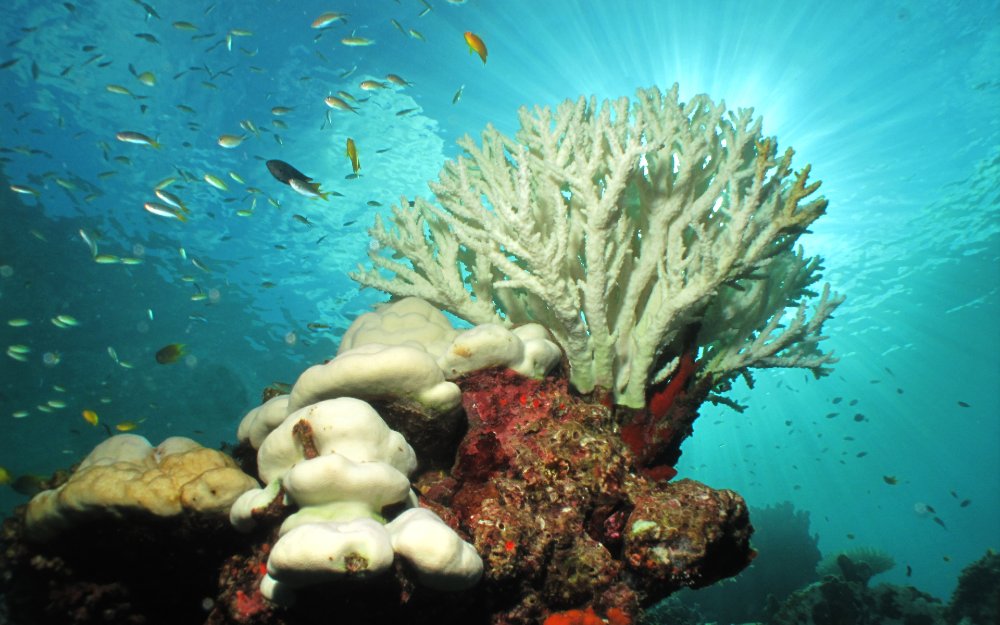
Module 4: Space Prep
Finding a way to recreate the experience of leaving Earth’s atmosphere is not an easy task. Underwater training, including the use of weights and floats to achieve neutral buoyancy, is one of the best ways we can simulate the weightlessness of outer space here on Earth. Aquarius allows astronauts in training as Aquanauts to experience weightlessness and to work through the logistics of a space mission, using unique tools and coordinating with a remote mission control center. Lessons within this module will explore the connections between sea and space while explaining topics such as Newton’s laws.
Students will create their own autonomous underwater vehicle and test design principles using concepts within physical science, nature of science, and engineering and design. Examples include using Newton’s laws to understand concepts such as motion, drag and force, and using engineering and design practices to develop a model.
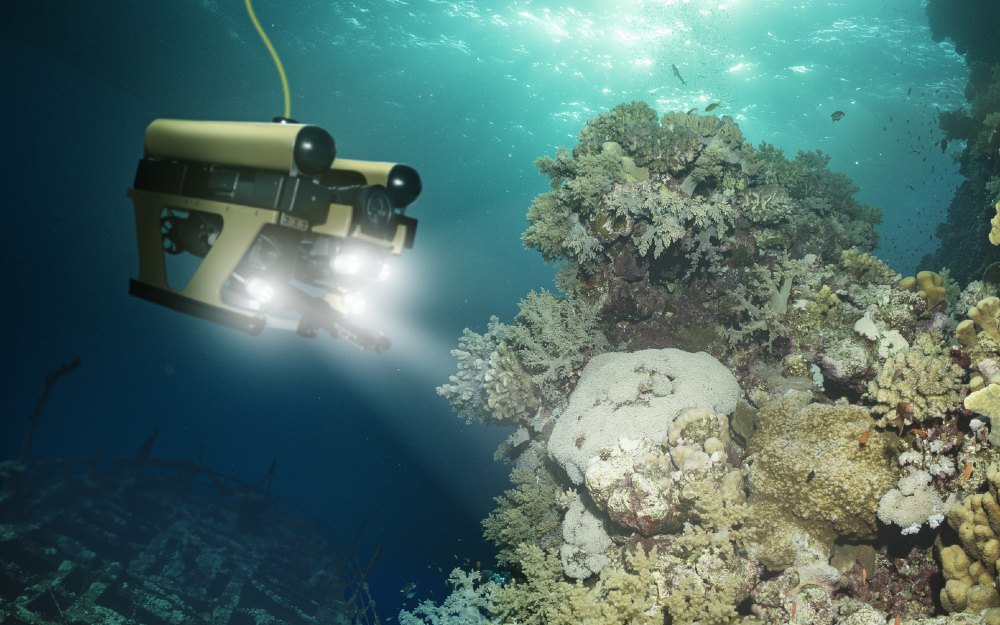
Create Connections
Ready for more? We offer many ways to engage with our research.
Standards-aligned programs create a more immersive experience for your students and enhance the learning outcomes of Mission Inspire.
Our professional development camp guides educators in making curricula that connect students with real university research.
Free activities and resources connect learners everywhere with experts from the nation's fourth-largest public research university.
